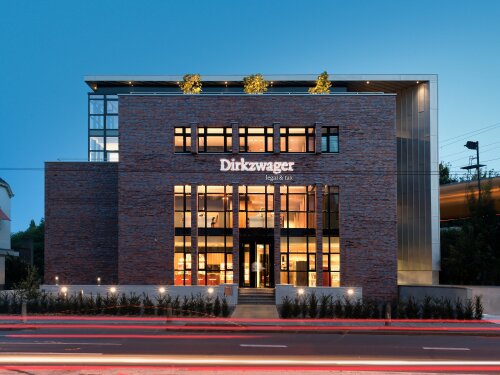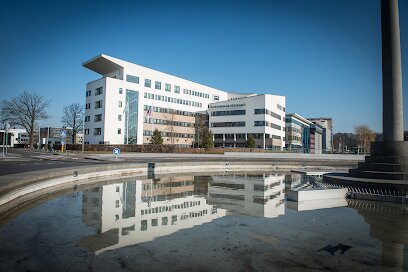Best Data Center & Digital Infrastructure Lawyers in Netherlands
Share your needs with us, get contacted by law firms.
Free. Takes 2 min.
Or refine your search by selecting a city:
List of the best lawyers in Netherlands
About Data Center & Digital Infrastructure Law in Netherlands
The Netherlands is recognized as a strategic hub for digital infrastructure and data centers in Europe. Its robust internet connectivity, favorable climate conditions, and progressive regulatory environment make it an attractive location for data center investments and operations. Data Center & Digital Infrastructure Law in the Netherlands encompasses a broad range of legal areas, including real estate, contracts, energy usage, data protection, cybersecurity, and zoning regulations. With increasing demand for cloud services and digital transformation, understanding the legal landscape has become essential for businesses aiming to establish, operate, or expand digital infrastructure.
Why You May Need a Lawyer
Engaging a lawyer experienced in Data Center & Digital Infrastructure offers invaluable guidance in navigating complex regulations, contracts, and compliance challenges. Common situations where legal support is vital include:
- Negotiating data center lease or purchase agreements
- Ensuring compliance with GDPR and other data protection laws
- Resolving disputes with service providers, clients, or contractors
- Drafting and reviewing Service Level Agreements (SLAs) for digital services
- Managing planning and zoning approvals for new facilities
- Addressing electricity supply contracts and sustainability commitments
- Assisting with mergers, acquisitions, or restructuring of data center assets
- Mitigating cybersecurity risks and handling breach incidents
Local Laws Overview
The regulatory landscape for Data Center & Digital Infrastructure in the Netherlands involves both national and EU legislation. Key legal aspects to consider include:
- Data Protection - The General Data Protection Regulation (GDPR) is strictly enforced, requiring data centers to handle personal data securely and provide transparency regarding data processing activities.
- Environmental and Energy Regulations - Data centers must comply with sustainability initiatives, energy-efficient requirements, and may need to report energy consumption. Government policies increasingly encourage the use of renewable energy.
- Zoning and Building Permits - Local municipalities enforce strict zoning and planning regulations affecting data center locations and expansions. Building permits and environmental assessments are mandatory.
- Connectivity and Telecommunications - Laws regulate the installation and operation of digital infrastructure, requiring adherence to standards for connectivity, cabling, and fiber networks.
- Cybersecurity - The Netherlands applies the EU Network and Information Systems (NIS) Directive, which sets requirements for managing security risks and reporting major incidents affecting digital infrastructure.
- Taxation - Data center operations may attract specific tax obligations, such as VAT or environmental levies, depending on facility activities and energy usage.
Frequently Asked Questions
What are the main legal considerations when building a data center in the Netherlands?
Key legal considerations include obtaining proper zoning and planning permits, complying with energy usage and environmental regulations, and ensuring contracts with contractors, suppliers, and customers align with Dutch law.
Do data centers in the Netherlands need to comply with GDPR?
Yes, GDPR applies to all data centers handling personal data of EU residents, requiring strict data protection, security measures, and transparent data processing practices.
What role do municipalities play in data center approvals?
Local municipalities are responsible for granting building and environmental permits, setting zoning restrictions, and ensuring new data centers comply with local planning and sustainability requirements.
Are there energy efficiency obligations for data centers?
Yes, Dutch authorities increasingly require data centers to improve energy efficiency, consider reuse of waste heat, use renewable energy sources, and report on energy consumption as part of environmental commitments.
How are cyber security risks regulated?
The EU NIS Directive, implemented in Dutch law, demands that operators of essential services, including large data centers, implement security measures and promptly report significant disruptions or breaches.
What happens if a data breach occurs at a Dutch data center?
In the event of a data breach, the data center must notify both the Dutch Data Protection Authority and affected individuals, depending on the severity of the breach and the type of data compromised, in accordance with GDPR.
What contracts are crucial for data center operations?
Critical contracts include Service Level Agreements (SLAs), energy supply contracts, colocation agreements, maintenance and support contracts, and agreements with cloud or network service providers.
Is there specific tax treatment for data centers in the Netherlands?
Data centers are subject to corporate income tax like other businesses, but may also be liable for additional taxes on energy consumption or environmental levies, depending on the facility’s profile and activity.
Can foreign companies operate data centers in the Netherlands?
Yes, foreign companies can establish and operate data centers in the Netherlands, provided they comply with all relevant local laws, permits, and regulations.
How can legal issues slow down data center projects?
Delays can arise from unclear contracts, failure to obtain proper permits, non-compliance with data protection or environmental standards, or disputes with stakeholders. Early legal involvement helps identify and resolve such issues efficiently.
Additional Resources
If you require further information or support regarding Data Center & Digital Infrastructure in the Netherlands, consider reaching out to:
- The Dutch Data Protection Authority (Autoriteit Persoonsgegevens) - for privacy and data protection matters
- Netherlands Enterprise Agency (RVO) - for business regulations, permits, and tax incentives
- Netherlands Foreign Investment Agency (NFIA) - for guidance on foreign investment and business establishment
- Digital Infrastructure Netherlands (DINL) - industry association for digital infrastructure professionals
- Local municipal offices - for zoning, building, and environmental permits
Next Steps
If you are planning a data center project or already operating digital infrastructure and need legal advice:
- Identify your specific legal questions or challenges
- Gather relevant documentation, such as contracts, permits, or business plans
- Consult with a specialized lawyer or law firm experienced in Dutch data center and digital infrastructure law
- Request a tailored legal review or risk assessment
- Stay updated on regulatory developments relevant to your business
- Establish ongoing legal support to manage compliance, contracts, and any disputes
Lawzana helps you find the best lawyers and law firms in Netherlands through a curated and pre-screened list of qualified legal professionals. Our platform offers rankings and detailed profiles of attorneys and law firms, allowing you to compare based on practice areas, including Data Center & Digital Infrastructure, experience, and client feedback.
Each profile includes a description of the firm's areas of practice, client reviews, team members and partners, year of establishment, spoken languages, office locations, contact information, social media presence, and any published articles or resources. Most firms on our platform speak English and are experienced in both local and international legal matters.
Get a quote from top-rated law firms in Netherlands — quickly, securely, and without unnecessary hassle.
Disclaimer:
The information provided on this page is for general informational purposes only and does not constitute legal advice. While we strive to ensure the accuracy and relevance of the content, legal information may change over time, and interpretations of the law can vary. You should always consult with a qualified legal professional for advice specific to your situation.
We disclaim all liability for actions taken or not taken based on the content of this page. If you believe any information is incorrect or outdated, please contact us, and we will review and update it where appropriate.
Browse data center & digital infrastructure law firms by city in Netherlands
Refine your search by selecting a city.













